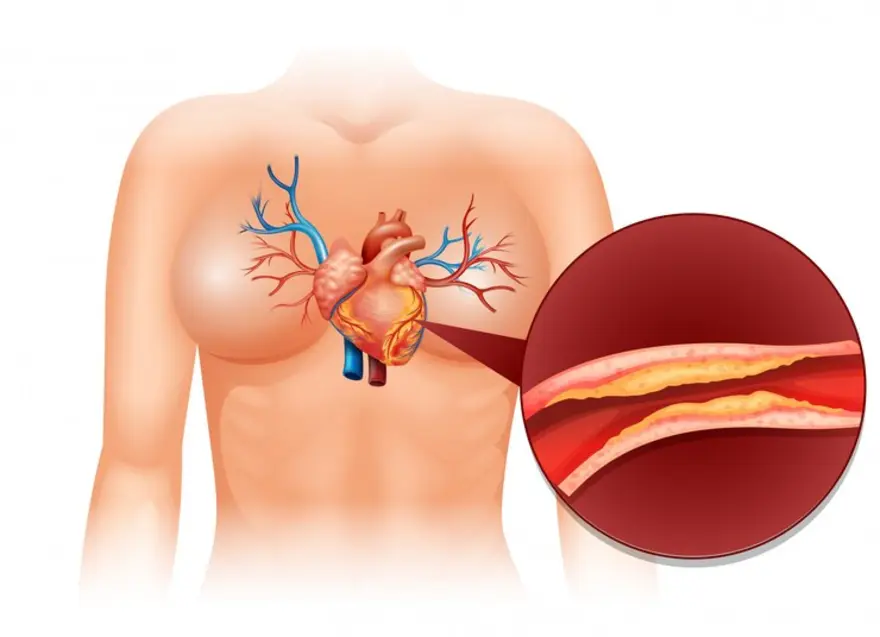Preventive Healthcare
Sinusitis (Sinus Infection): Symptoms, Causes, Risk Factors & Treatment
2323 Views
0

What is Sinusitis?
Sinusitis is an inflammation of your sinuses. Sinuses are hollow spaces inside your forehead, nose and cheeks that are filled with air. They make mucus. It keeps your nostrils moist and safe from allergens, dust and pollutants. However, you develop sinusitis when your sinuses become swollen or blocked and filled with fluid due to the common cold, bacterial or viral infections or allergies.
Sinusitis causes pain, stuffy nose, runny nose and sometimes fever. However, it is not contagious. It often heals on its own.
Learn more about sinusitis - its types, causes, symptoms and treatment options.
Types of Sinusitis
The type of sinusitis depends on the duration of the infection and its cause. There are four types of sinusitis:
- Acute Sinusitis: It develops due to the common cold. It lasts less than a few weeks. Your symptoms may heal by themselves or with over-the-counter medications.
- Subacute Sinusitis: This type of sinusitis lasts for about four to 12 weeks.
- Chronic Sinusitis: The symptoms of chronic sinusitis last for more than 12 weeks.
- Recurrent Sinusitis: As the name suggests, this type of sinus infection occurs throughout the year. You may experience its symptoms for a couple of weeks a few times a year.
Apart from these, there are bacterial and viral sinusitis and fungal sinusitis.
- Bacterial and Viral Sinusitis: These are caused by bacteria and viruses. These cause a stuffy nose, runny nose and facial pain. The symptoms of this type of sinusitis last more than 10 days.
- Fungal Sinusitis: Sinus infection caused due to fungus can be more severe than others. It usually develops due to a weak immune system.
Symptoms of Sinusitis
Signs and symptoms of sinusitis include:
Causes of Sinusitis
Sinusitis occurs due to blockage in the sinuses due to mucus.
Cold, allergens or bacteria can cause excess mucus. This mucus becomes thick from build-up. This encourages the growth of bacteria and germs in the sinus cavity. This further causes sinusitis.
Risk Factors For Sinusitis
Some people are more prone to sinus inflammation than others. The risk factors of sinusitis include:
- Swelling or growth in the nose.
- Nasal polyps.
- A weak immune system.
- History of allergies.
- Respiratory tract infections due to bacteria, fungi or viruses.
- Deviated septum.
- Nasal allergies.
- Cystic fibrosis which leads to the build-up of mucus in the lungs.
- Exposure to mould.
- Dental infection.
- Smoking.
- Environmental pollution.
When to See Your Doctor?
Consult your family physician if your symptoms do not improve even after 10 days of treatment with decongestants and over-the-counter cold medications.
Consult your doctor at the earliest if you have the following signs that indicate severe sinus inflammation:
- Redness around the eyes.
- Fever.
- Sinus headache.
- Swelling of the forehead.
- Blurry vision.
- Stiffness in the neck.
- Confusion.
How is Sinusitis Diagnosed?
Your doctor will check your health history and observe your symptoms to diagnose sinusitis.
They will examine your ears, nose and throat to check for swelling or blockage. They may also use an endoscope to look inside your nose. An endoscope is a thin, flexible tube with a light. It helps check the insides of your sinuses for fungi, polyps and tumours.
Your doctor may prescribe certain diagnostic tests to confirm your sinusitis. These include:
- Nasal swabs to get a fluid sample of your nose to check for viruses or germs.
- Allergy testing to test for allergens that may trigger sinusitis.
- CT Scan to observe the insides of your sinuses and detect the cause behind the infection.
- X-ray of your sinuses.
- An MRI to study the internal structure of your sinuses.
- Blood tests to check for health conditions that cause a weak immune system.
Treatment Options for Sinusitis
Treatment for sinus inflammation depends upon your symptoms and their duration. You can begin treatment for sinusitis at home with,
- Over-the-counter cold and allergy medications.
- Decongestants.
- Drinking warm water and plenty of fluids.
- Steaming to loosen the mucus and relieve congestion.
- A warm compress to be placed alternately on the forehead, nose and cheeks for a few minutes, two to five times a day to get relief from pain and discomfort.
If your symptoms do not improve after 8 - 10 days, your doctor may prescribe,
- Antibiotics for runny nose, fever, congestion and cough.
- Nasal sprays (for a short duration).
- Antihistamine sprays and/or medications to treat allergies.
- Surgery to remove nasal polyps, repair a deviated septum or clear the sinuses.
How Can Sinusitis be Prevented?
Sinusitis is a common condition. It can develop at any time of the year due to allergens or bacterial and viral infections. You can prevent sinusitis by,
- Getting a flu injection every year.
- Maintaining good hygiene by washing hands with soap and water regularly to reduce the risk of infectious diseases.
- Preventing allergies by taking regular antihistamine medications and avoiding triggers like dust and pollen.
- Rinsing the nose regularly using salt water as directed by your doctor.
- Avoiding smoking.
Summing Up
Sinusitis is a common health condition. It develops due to the build-up of mucus and allergies and often results in sinus inflammation. It can also occur due to the common cold and other bacterial and viral infections.
It is advisable to begin treatment at home as soon as you observe the symptoms. Drink lots of warm fluids and get ample rest as sinus infections can cause tiredness and lethargy. However, if your symptoms do not go away even after 10 days, please consult your doctor at the earliest. Your doctor may order allergy tests to diagnose the reason behind the inflammation. Always get yourself tested at a leading diagnostic service provider like Metropolis Healthcare. They believe that early detection and accurate diagnosis can provide effective treatment and positive results.
 Home Visit
Home Visit Upload
Upload














1701259759.webp)









 WhatsApp
WhatsApp